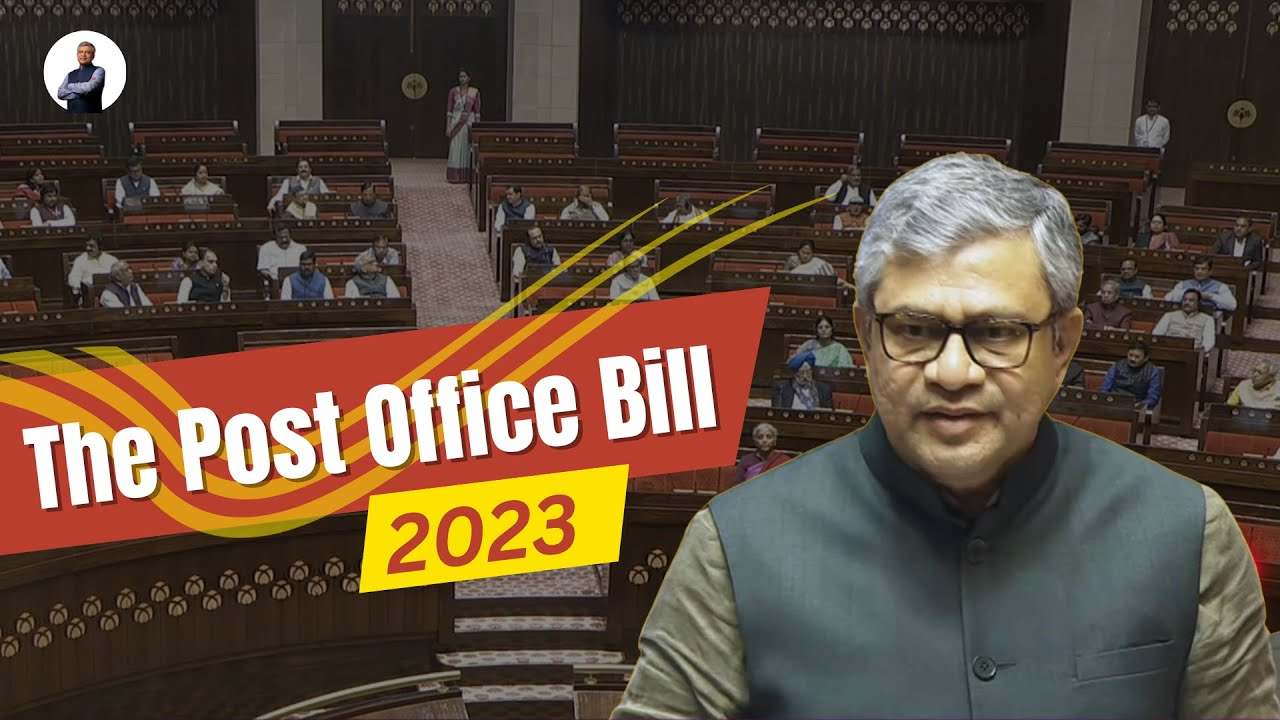Description

Copyright infringement not intended
Picture Courtesy: http://www.saposts.com/
Context: The Post Office Bill of 2023 marks a significant legislative change aiming to modernize and expand the services offered by the Indian Postal Department. However, it has raised substantial concerns among Opposition MPs, primarily regarding the provisions related to state surveillance and privacy violations.
Key Features
- Grounds for interception: The Bill allows interception based on various grounds such as security of state, public order, emergency, or contravention of the law.
- Powers of interception: Officers appointed by the Central government can intercept, open, or detain postal items under these grounds.
- Delivery to customs authority: Suspected items can be delivered to customs authorities for further action.
- Exemption from liability: Post Office and officers are exempt from liability unless fraudulent or willful actions cause loss or delay.
- Removal of offences and penalties: The Bill removes specified offences and penalties, recovering unpaid amounts as arrears of land revenue.
Concerns Raised by MPs
- Violation of right to privacy: MPs argue that the Bill violates the fundamental right to privacy.
- Undefined terms: Terms like 'emergency' lack clarity, giving excessive power to authorities.
- Lack of clarity on authority and procedures: Concerns were raised regarding the selection and authority of officers and the absence of specified procedures for interception.
- Encouragement of state surveillance: The Bill, without guidelines, is seen as encouraging state surveillance and potentially violating constitutional rights.
- Exemption from liability and absence of grievance redressal: Lack of penalties and absence of grievance redressal mechanisms were highlighted as problematic.
Government's Response
- The government emphasized the importance of interception for national security.
- Assurances were made about framing fair and transparent interception procedures.
- Clarifications were made regarding carve-outs in the law.

Conclusion
- The Bill's passage and concerns raised reflect the ongoing debate between national security measures and safeguarding individual rights, especially privacy. Opposition MPs and legal experts underscore the need for stringent safeguards and transparency in exercising state surveillance powers to avoid potential abuses.
|
PRACTICE QUESTION
Q. How did postal communication play a significant role in facilitating and shaping the Indian freedom struggle, and what impact did the exchange of letters, pamphlets, and newspapers through the postal system have on the communication and coordination among freedom fighters during this period?
|









